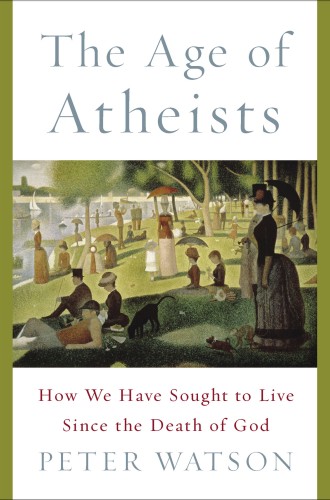Cloud of skeptics
Atheism has a long history going back to the Greeks. Classical Stoicism allowed that there are gods but contended that a wise person need pay them no heed. Leaders of the French Enlightenment considered God beneath rational consideration. And so on. Why, then, does Peter Watson begin “the age of atheism” in 1883, when Nietzsche proclaimed that God was dead?
Jean-Paul Sartre offers an answer. Previous atheistic thinkers had said that “nothing will be changed if God does not exist; we shall rediscover the same norms of honesty, progress and humanity.” Post-Nietzschean atheists are not so optimistic. Sartre “finds it extremely embarrassing that God does not exist, for there disappears with Him finding values in an intelligible heaven. . . . It is nowhere written that ‘the good’ exists.” Watson’s age of atheists is a new era for humanity, a time without “an intelligible heaven,” when not only is God dead, but humanism is in jeopardy.
The Age of Atheists sketches in the lives and thoughts of an overflowing array of scientists, poets, artists, and philosophers, all of whom offer ways of coping with the death of God. Watson includes famously influential atheists like Marx and Freud, tragic atheists like Sartre and Kafka, proselytizing atheists like Richard Dawkins, poetic atheists like Paul Valéry and Wallace Stevens, and nostalgic atheists like Jürgen Habermas and Ronald Dworkin, who want to resuscitate religion minus its supernatural trappings. Even Benjamin Spock’s Baby and Child Care is included in the godless canon. Watson made his own position clear in a BBC broadcast: “The biggest mistake in the history of civilization was ethical monotheism.”





